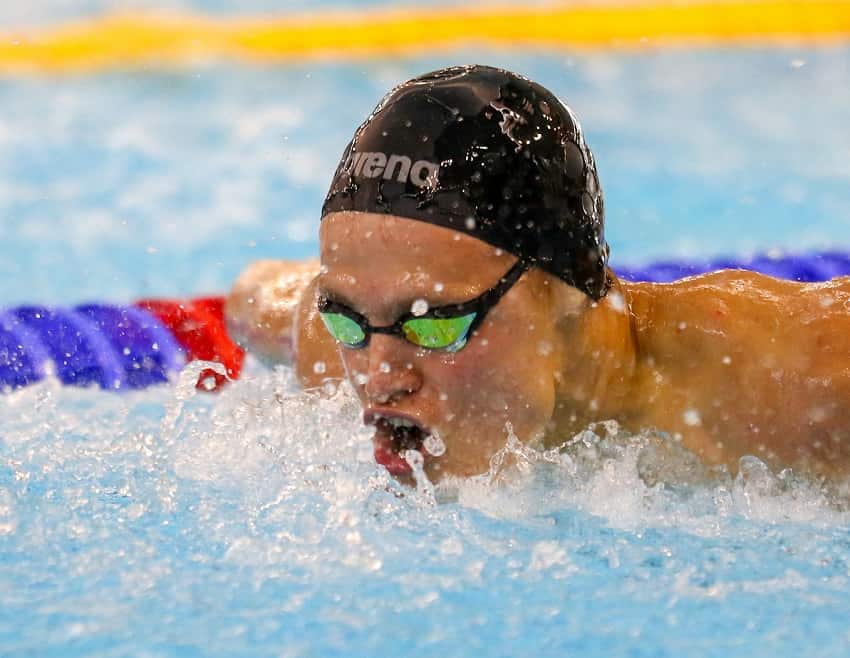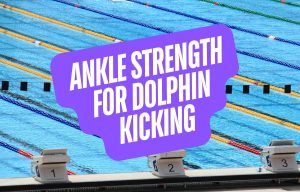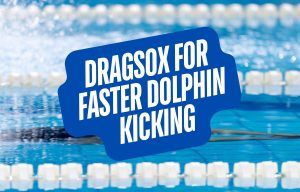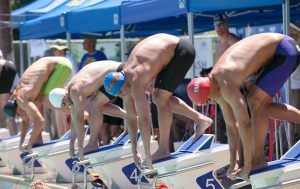One of the oldest and simplest tools available to swimmers is the log book.
Olympic distance legend Janet Evans used one. Katie Ledecky uses one. Caeleb Dressel has used them since he was an age grouper. Olympic gold medalist Cody Miller uses one too.
There are a lot of powerful reasons to write out your workouts:
- The log book gives you a place to celebrate and reflect on your successes.
- You gain a “big picture” understanding of your swimming, helping you create healthier expectations and goals.
- You can better plan and plot the things you want to accomplish in practice, from total volume to grading your effort.
- A training journal also gives you the ability to stay on top of the critical lifestyle factors that affect your swimming, from sleep to nutrition to stress management.
And so much more.
Ultimately, a log book gives you a tool to measure and evaluate the things that matter the most to your swimming, helping you stay focused and consistent on those things over the course of the year.
But while the benefits may sound lovely, a lot of swimmers struggle with making it a consistent part of their training.
Here’s how to get into the habit of writing out your swim workouts using a log book.
Make it part of your post-workout routine.
Hands down this is the biggest thing to focus on. The key to making the habit of writing out your workouts is to schedule it and make if part of your usual routine. Don’t wait until “later” or when you “feel like it.”
Set a point in your training schedule each day to write your workout.
I’ve been doing it for so long that it is second nature–I walk through the door after practice, and with a protein shake in hand sit down and write out my practice.
The results are still fresh in my mind at this point, and as I glug down that yummy chocolate flavored shake I detail how my practice went, how many meters were swum, how many meters at race pace were completed, any dryland I did, and a few quick sentences on how the workout went.
Schedule a few moments to sit down with your log book as part of your post-workout routine:
- After I hang up my towel, I write out my workout.
- After I get out of the showers, I write out my workout.
- In the car ride home after practice I write out my workout.
Schedule when and where you will write out your workout and stick to it. After a few weeks it will become border-line automatic.
Avoid the urge to write out absolutely everything.
The excitement that comes with seeing what is possible from writing out your workouts is palpable. And so what do you do? Start writing out every last detail about every last meter or yard you did at practice that day.
But there are two problems with this.
First, it’s not sustainable, particularly if writing out your workouts is brand new to your swimming. Going into extensive detail may feel satisfying the first couple times you do it, but habits are best learned and stuck when they are simple and so easy that you can’t not do it.
Harness the enthusiasm and write out the things that are the most important to your swimming and no more.
Second, by filling your log book with endless detail you are drowning out the key things in your training that matter the most. Things like: Your effort level (rank yourself out of ten, for example), number of meters swum at race pace, or how much you slept last night.
Log books are at their best when the information you are putting into it has the most amount of impact on your overall performance in the water.
Write out the full workout but focus the comments and the details on the handful of priorities you have for your swimming.
Share it with your coach.
A log book is a tool for accountability and ownership. Add another layer of ownership of your swimming by having your coach review your log book periodically.
When Katie Ledecky was preparing for the London Olympics her coach at NCAP, Yuri Suguiyama would regularly review her log book and the comments she left after each practice.
The log book became a way for swimmer and coach to better communicate, as her commentary on the workouts gave Suguiyama a deeper understanding of how she was reacting to training.
This understanding improved athlete-coach communication and helped better inform how Suguiyama coached Ledecky moved forward.
Schedule a weekend to hand over your log book to your coach for their thoughts.
Knowing your coach will look through your log book will give you a bit of added motivation to work hard at practice, will give you a way to communicate with your coach, and better inform his or her efforts in coaching you.
Don’t just relive the workout—plot a way forward.
No matter how focused and motivated you are, there will be days where things just don’t seem to click in practice.
Your stroke feels off. Maybe you’re feeling a little off physically. Or you are so stressed with school that it’s impossible to focus on swimming.
These are the moments where your log book is at its best.
Yes, logging that stinky workout will sting a little. But it’s in what you do next that will separate you from the competition. When a workout falls apart, plot your way forward.
Here’s an example.
I had a morning swim workout recently that went south on me. I was off pace and my stroke felt like garbage.
By the time I got home and sat down with my log book, I realized that there were some technical things that I could focus on the next time I got into the water.
My legs had been cork-screwing a bit during the main set. I could correct this by more properly engaging my core. I also hadn’t done a good enough warm-up. I could do a better warm-up next time around. Along with the bad workout I wrote out the good things I could improve on.
Bad workouts will happen. Disappointing efforts are a natural part of the pursuit of improvement.
But choosing how you can be better and how you will react gives you concrete things to work on (which alleviates some of the “woe is me” aftertaste of a crappy workout) and gives you the tools to rationally and proactively confront adversity and disappointment.
When a bad workout happens use your log book to decide how you will be better next time around.
The Takeaway
Writing out your workouts can feel like a chore. I get it. The last thing you want to do is sit down and mentally go over a bad workout.
But putting the workout to paper can help put that bad session into perspective and give you some ideas for how to move forward. You will become more self-aware and position yourself for hyper-improvement in the weeks and months to come.
More Stuff Like This:
This Mental Training Workbook Will Help You Swim Like a Rock Star This Season. Confused about mental training? Want to unleash pro mode on your swimming this year? Learn how this mental training workbook will change your mindset and help you pummel your PB’s this season.
Why You Should Be Grading Your Effort After Practice. One of my favorite ways to stay consistent and accountable in practice is this simple technique. Takes about three seconds, and will keep you honest about the effort in the water.














